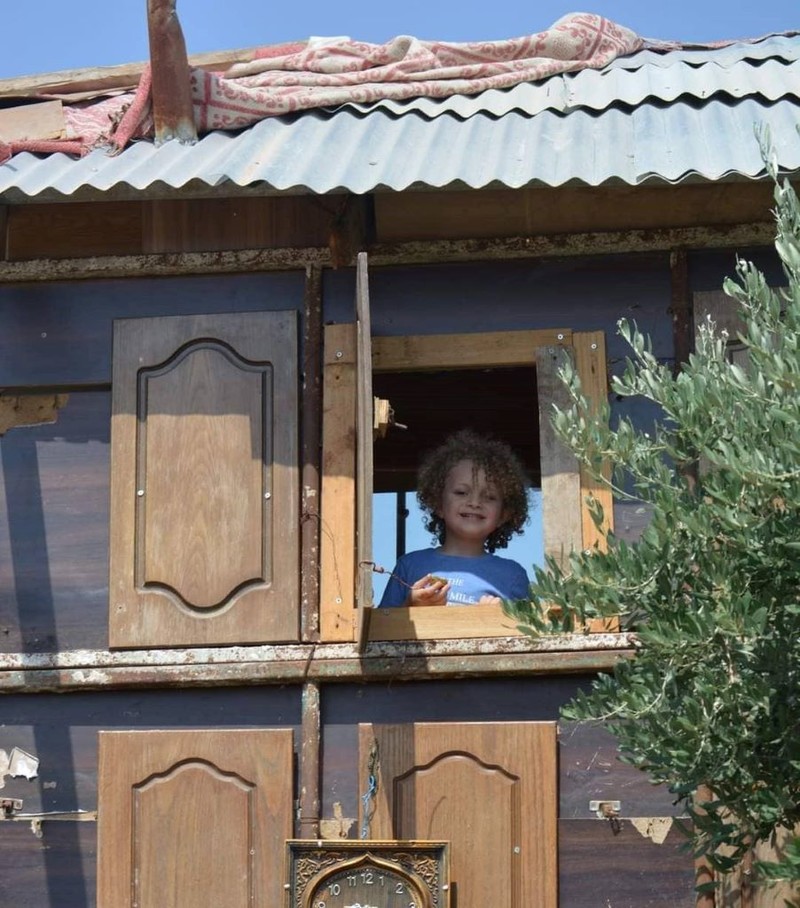P F Tinmore
Diamond Member
- Dec 6, 2009
- 83,599
- 4,686
- 1,815
- Thread starter
- #5,601
Follow along with the video below to see how to install our site as a web app on your home screen.
Note: This feature may not be available in some browsers.



Freedom of speech in apartheid Israel.

Palestinian journalist Lama Ghosheh is brought in for a hearing at an Israeli court Jerusalem on 12 September. Ghosheh, who was arrested the previous week, was charged with voicing support for Palestinian armed struggle against Israeli colonization and occupation on social media. Ghosheh was released the following day on the condition that she not use social media or leave her home.
Oren Ziv ActiveStills
Freedom of speech in apartheid Israel.

Palestinian journalist Lama Ghosheh is brought in for a hearing at an Israeli court Jerusalem on 12 September. Ghosheh, who was arrested the previous week, was charged with voicing support for Palestinian armed struggle against Israeli colonization and occupation on social media. Ghosheh was released the following day on the condition that she not use social media or leave her home.
Oren Ziv ActiveStills

A Palestinian inspects his car after Jewish settlers threw stones at it in Burin village, near the West Bank city of Nablus, on 9 September.
Nasser Ishtayeh SOPA Images
Flocking to guns | PM Lapid urges 30,000 volunteers for Civil Guard
Half a year since the start of the wave of murderous Islamist attacks against Jewish and Arab communities, a 100% jump in the number of requests for a gun license
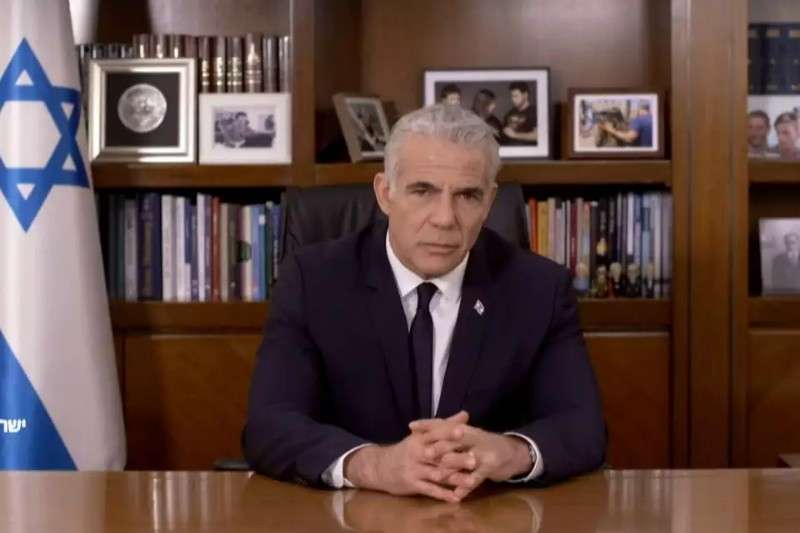
Prime Minister Yair Lapid opened the conference and said that "the first duty of the state is to protect its citizens, their homes, their property, their fields, this is the only issue on which there can be no compromises. If the State of Israel wants to be a state of law, it needs tools to enforce the law."
"For years, the law enforcement system has been neglected, starved, not given the tools it needs to make Israel a country that is safe for its citizens," said Prime Minister Lapid. Our priority is national."
"Cars cannot continue to run amok on the roads of the south, young women cannot be murdered by relatives, farmers cannot tolerate destruction and theft in their fields, businesses cannot tolerate gangs that specialize in protection, tenders cannot be sold under the table, children cannot be stabbed when they go out to spend the night" .
"What we need is 5,000 more police officers, 26 more Border Police units in reserve, 30,000 more volunteers in the Israeli Civil Guard that will be based on the operating principles of the "New Shomer". We need to expand urban policing - out of 257 municipalities in Israel, there are urban policing units in only 75 communities. We need to expand urban policing to every community in Israel and especially in Arab society."
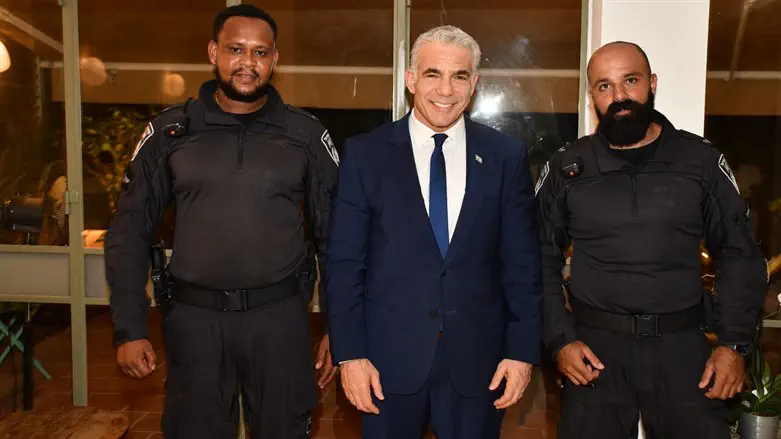
Lapid with Muhabau Mangistou and Sharif Hasson, who prevented the terror attack in Jaffa.
Read more -

סמוטריץ בכנס המשילות: "20% מהאוכלוסייה מזדהים עם האויב, אי אפשר להתמודד איתם בכלים של אוכלוסייה נורמטיבית" | ישראל היום
פרטים בהמשךwww.israelhayom.co.il

לפיד פגש את השוטרים שעצרו את המחבל ביפו: "ישראל כולה מודה לכם על גבורתכם"
השוטרים שמנעו את הפיגוע שתיכנן המחבל בתל אביב יקבלו תעודת הערכה על פעילותם מראש הממשלה.www.inn.co.il

How did Israel become SUPER POWERFUL & What India needs to learn from it? : Geopolitical Case study
Gravitas: Pakistani delegation makes 'secret' trip to Israel
Secret delegations from Pakistan and Indonesia are reportedly visiting Israel. Are the two Muslim nations planning to recognize Israel? What would a normalisation mean for both sides?



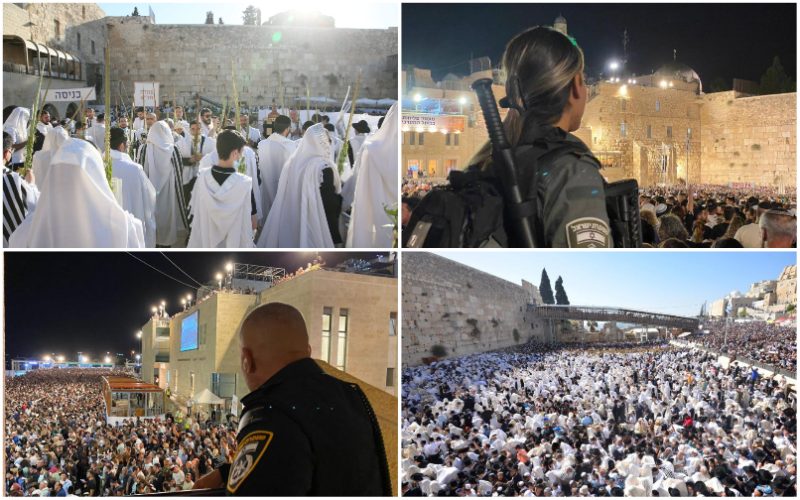

 har-habait.org
har-habait.org
What is the real reason that Mosheh Rabbenu did not enter the Land of Israel? | Rabbi Oury Cherki
I want to tell You, I've met several years ago, a rabbi from abroad, and an important community. I asked him, 'do You encourage Your community to immigrate to the land, to do 'Aliyah?'. He says, 'look ahmmm…yes, yes 'Aliyah is important, but it has to be accompanied with a spiritual 'Aliyah'.
Angered me – what does it mean a spiritual 'Aliyah? The 'Aliyah is a spiritual 'Aliyah! And this we see in action, we see the fruits, we see the nation of Israel change, how the nation of Israel grows in glory, how the nation of Israel can also say 'wow!'…well it's..
I want to tell You several things about the Weekly Torah Portion. Don't worry it won't go beyond 2 hours, but really it's going to be much shorter. We all know this, the 'Shlah' portion is the portion of the 'Aliyah to Eretz Yisrael. And we're meeting resistance to the 'Aliyah, there're people who don't want, and not small people, the greatest in Torah, the greatest in Torah in scale of the days of Mosheh Rabbenu, oppose entering the land. This is a very strange thing, and really the classic Jewish literature dealt a lot with the question – what was the cause of this resistance?
And to say the truth – it doesn't matter. What is important is not why they resisted, rather what was the answer given to their arguments. We see in Torah, two speeches attempting to answer the words of those spies, the leaders of Israel who resisted entering the land.
The one in our portion – Calev Ben Yefuneh answers to the words of the spies. And where is Mosheh? Isn't in the portion; In the 'Devarim' portion, Mosheh Rabbenu repeats the story, and he's telling about his response, and regarding the response of Calev, he doesn't speak.
Very strange, then what really happened? Who responded to their words? Did Mosheh respond, or Calev respond? I assume they both responded. Then why are the words of Calev in one portion, and the words of Mosheh in a different portion?
So that we don't compare them!
Meaning, so that we don't do what I'm going to do now.
And the story, now ask, then why nevertheless I allow myself to do what Torah didn't want us to do? Because I've learned, a conclusion I've reached from looking into Rashi – that there's a difference between the first reading in Torah, and the second reading.
For example, the end of 'Noah' portion, Torah says – "and Terah died in Haran", Terah the father of Avraham, "and Terah died in Haran. And said HaShem to Avraham "Go forth…".
What do I understand from a shallow reading – Teah died, and then Avraham made 'Aliyah to the land. But Rashi says, if You pay attention, You see according to the number of years, that Terah was alive when Avraham made 'Aliyah to the land.
Then why did Torah tell about the death of Terah beforehand? Rashi says, so that it won't be evident to all, that left his father and made 'Aliyah to Eretz Yisrael.
So what does Rashi do? He destroys the intent of Torah, Torah wanted to hide it, and Rashi reveals! However probably Rashi wants to teach us a very important thing, there's Your first reading in Torah – the first time You meet Avraham Avinu, You're not to know he left his father, because You'll have a bad opinion, and the first impression will remain. But after You reveal who's Avraham Avinu, what great character, what his 'Aliyah to the land did, then You're willing to forgive that he left his father.
Therefore I learn, that when we read in Torah, there're two readings. So, in the first reading we see, there's no comparison between Calev and Mosheh. Now as I pass to the second stage, I want to compare the words of Calev to the words of Mosheh.
Calev, when he sees the nation of Israel afraid of the war, war is a frightening thing, a painful thing, what does Calev do – gives a motivation speech. "Let us by all means go up, and we shall gain possession of it, for we shall surely overcome it! If HaShem wants us and gave us the dwellers of this land. Their shadow has departed from them!". HaShm is with us, don't be afraid. What does he say? He says – not to be afraid. Folks cheer up – we can.
What does Mosheh say in the portion 'Devarim'?
Mosheh when he hearing the nation is afraid of the war, tells them 'don't worry, HaShem will fight for you', will do you miracles. I know Him for years, I know the Holy Be Blessed can do miracles, will do you miracles. So you have nothing to be afraid about the war.
Exactly the opposite of the discourse of Calev! Calev says that in the land of Israel you behave naturally. Mosheh thinks he is still in the desert!
In the desert there's a place for miracles, in the land of Israel it's without miracles – You have to work Yourself.
What is the response? In the portion of 'Devarim' it's written - "Not one of those involved, this evil generation, shall see the good land that I swore to give to your fathers". Meaning HaShem says they will not enter the land. "None except Calev Ben Yefuneh; he shall see it!" What is Calev doing here, we didn't even hear about him? Rather this is to say, Your discourse Mosheh, is not acceptable, what Calev said accepted.
There Mosheh adds another shocking sentence – if there're sensitive people, please go out now. He says – "Because of you HaShem was incensed with me too, saying: You shall not enter it either. Yehoshu'a Bin Nun, who attends you, he shall enter it. Imbue him with strength, for he shall allot it to Israel".
So what do I understand? That Torah, here Moshesh revealed the true reason for which Mosheh Rabbenu didn't enter the land – because he wanted a miraculous history, HaShem does for you the work. In the land of Israel HaShem doesn't do the work for you, you do the work for HaShem.
And this is what Dvorah said, it's necessary to come to the help of HaShem, not in the help of HaShem, to the help of HaShem. Now this is a very interesting thing, what do we learn from this? We learn that in Eretz Yisrael, it's not only necessary to make an effort, but something even greater – that our efforts bear fruit, our efforts succeed setting motion to history.
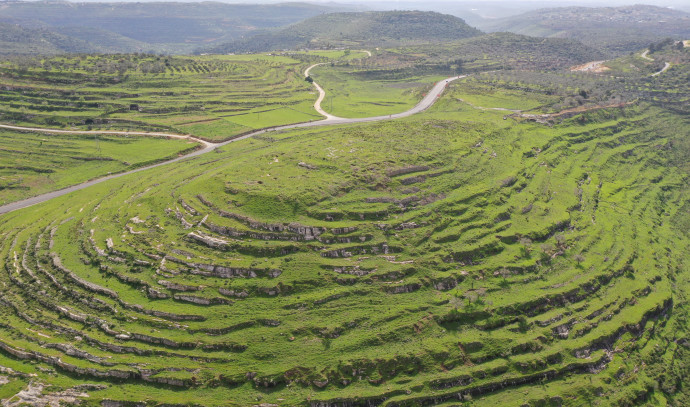
First archaeological dig begins at site believed to be Joshua's tomb
Khirbet Tibnah is located on a hill in the southwest of the Samaria region, east of Shoham near Halamish. The site was populated from the Bronze Age until the beginning of the Ottoman period.www.jpost.com
When Are You Making Geulah?

I’ve never been a fan of Kabbalah. I acknowledge that it is based in tremendous holiness and wisdom but it’s simply way over my head. I have tried to understand it – several times – but it goes in one ear and out the other.
I think the reason for this is because I am a Jew who is deeply rooted in the world of action. You want me to shake a lulav, put on tefillin, eat matzo and lend money to the poor? No problem… tell me how. Explain the details of the commandment and I will gladly perform the task. It is an honor and an amazing privilege to serve the King of Kings, but I need proper instructions and guidelines.
Telling me that the left side of my body is effected while simultaneously connecting me to the attribute of splendor makes me ask the great question; Huh?
Don’t get me wrong… I’m not a robot. I appreciate knowing the reasons “why” but the answer needs to be as simple and as direct as the question.
We say “Shema” in order to accept the yoke of the kingdom of heaven. We guard our speech to spare our brothers pain. We say “Kiddush” to turn Friday night into Shabbat and we dress modestly to protect the holiness of our bodies.
With that in mind, what is the reason for me begging you to move to Eretz Yisrael?
Let’s stay focused and really understand why. I will even avoid using the word “Aliyah” since nobody really knows what “going up” to the Land of Israel even means. The question is direct and innocent and deserves an answer that isn’t full of hype, desperation or illusions. The answer is simple; because when Jews move back to the Land, the “Geulah” – the redemption – gets much closer!
You should not move your family to Israel because tuition is cheaper than it is in NY. You should not move because of the political situation nor because of the great weather. A Jew leaves his/her job, sells their house and moves their family thousands of miles for one reason and one reason only: It ends the 2,000 year physical exile and brings the Geulah closer.
It saddens me greatly that very little is spoken about this.
Millions of words have been written about the destruction of the Bet Ha’Mikdash and the exile that ensued as a result. We have been taught about the root cause of the exile yet how many times has it been pointed out that this galut (exile) had two sides to it?
There was the physical side and there was the spiritual side and in order to rectify the situation – and reverse what happened – we need to repair both sides of that equation.
Yet, every shiur, every class, every book and every “scholar in residence” program focuses on the spiritual side only. Of course we need to be better in performing mitzvot and, as stated above, let’s all learn how to do that… but that’s half the battle. Imagine mixing the most amazing ingredients together for a delicious cake but never putting it in the oven!
Moving to Israel is the physical side of things. Think about it. When slavery ended in Egypt, did we stay there? Why not?
We had the greatest leader, the holiest kohen and a direct connection to HaShem. The Jewish nation could have built the finest yeshivot in Goshen and we would have served HaShem right away… without the 40 year schlep and without the wars. Yet, HaShem did not want that… He wanted more than spirituality… He wanted the Jewish nation in the Jewish land! Only then would the redemption be complete!
Fast forward about 3,300 years and what do you find?
A Jewish nation that thinks they know better. Its ok if we stay in Lakewood… have you seen how many yeshivot there are? We are fine in Kew Gardens Hills, Far Rockaway and Baltimore… we are keeping the mitzvot “mehadrin min ha’mehadrin”… and I’m sure they think they are! The problem with this logic is that these pure Jews are in modern day Goshen. The door is open for the final redemption… something we daven for 3 times a day but the cake stays out of the oven…
Therefore, as the year winds down, make sure to add this to your list. Ask HaShem for good health, shidduchim, children that stay connected to a Torah life, parnossa AND beg HaShem to help you, and your family, out of the physical exile. Daven to our merciful Father that He brings you home… but not on Aliyah… that He brings you home on Geulah!

When Are You Making Geulah?
It's simple, when Jews move back to the Land, the “Geulah” – the redemption – gets much closer!www.jewishpress.com
(Comment)
I don't know how I'd behave in diaspora,
but I do know there's a way, that women make
the main move, or demand, on an individual family level,
not immediately seen in the historic forest of the collective event.
Are Israelis White? | Zionism Revisited | Unpacked
Throughout history, people have traveled from across the world to make Israel their home. This has created a fundamental Israeli value to encourage and support immigrant absorption. Immigration to Israel is not without its challenges. While there may be many differences in ideologies, religious and political beliefs, and languages spoken, this vastly multicultural society is what makes Israel the richly diverse mosaic that it is today.
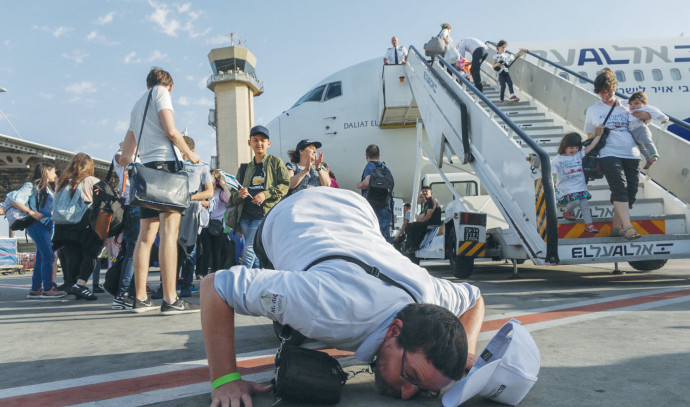
Israeli Cultural Revolution - Passion For The Temple | The Imaginative Force | Prophetic Cinema
"Those of vast grasping, their force of imagination is great and very exalted." - Rabbi Kook
At least among us Jews, those who have a grasp of knowledge,
are those of great imagination. And then there's great daring,
in their descriptions, their thoughts.
We can see this among the prophets.
We can also see this among Kabbalists.
The terminology is full of imaginative power.
Which causes superficial people to think all these folks are confused and need psychiatric hospitalization. But they don't need any, they are entirely normal people. With that, they have great imaginative power, breaking many borders.
In the scientific field, until Psychoanalysis none of this was known. The Freudian psychoanalysis revealed great depths within the human subconscious, symbolic thinking.
Also later, Jung has many observations of this kind - the collective unconscious...the ocean of souls.
So, "those of vast grasping, their force of imagination is great and very exalted, and it's connected with visions that are more general in reality. And according to their courage,
and purity of their spirit, the imaginative power enacts itself through them. To draw exalted imaginations, that the light of the high truth reveals by them. In such revelations that no logical mind can reach".
What does Rabbi Kook want from us? That we are not to be scared of meeting people
of such imaginative force, that we don't think it's a shortcoming, moreover - it is an advantage.
Possibly Rabbi Kook wants something else, besides not being scared to meet such people, rather Rabbi Kook tells You: "Maybe You, the reader, You are one of these great people,
that You don't get scared seeing You have imaginative power that is great ,
use it for these sacred purposes.".
Israeli Cultural Revolution Pesah 5782 -
Revival of Prophetic Poetry
Rabbi Mosheh Elharary,
chief rabbi of the city of Shlomi.
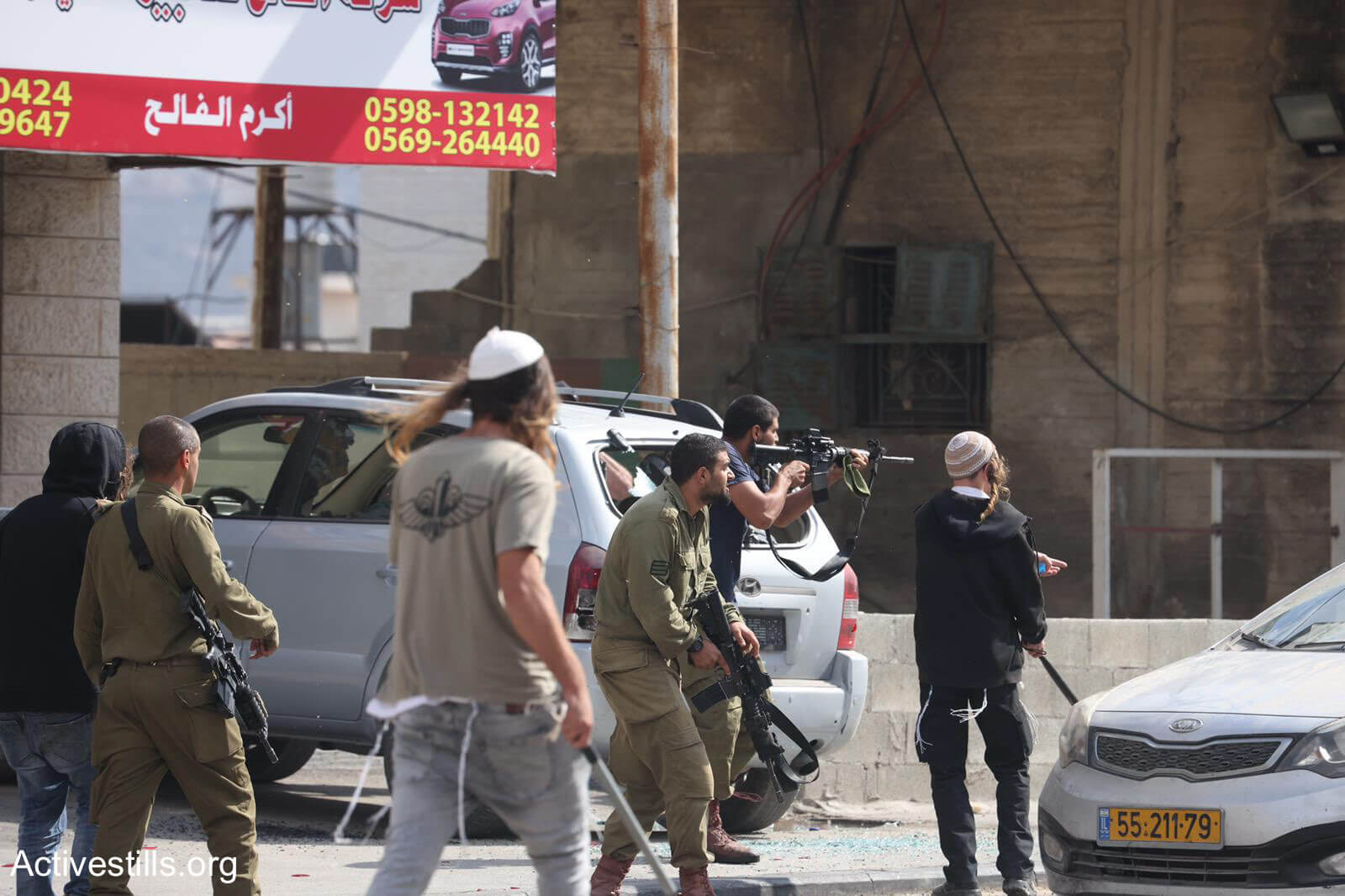
 mondoweiss.net
mondoweiss.net
